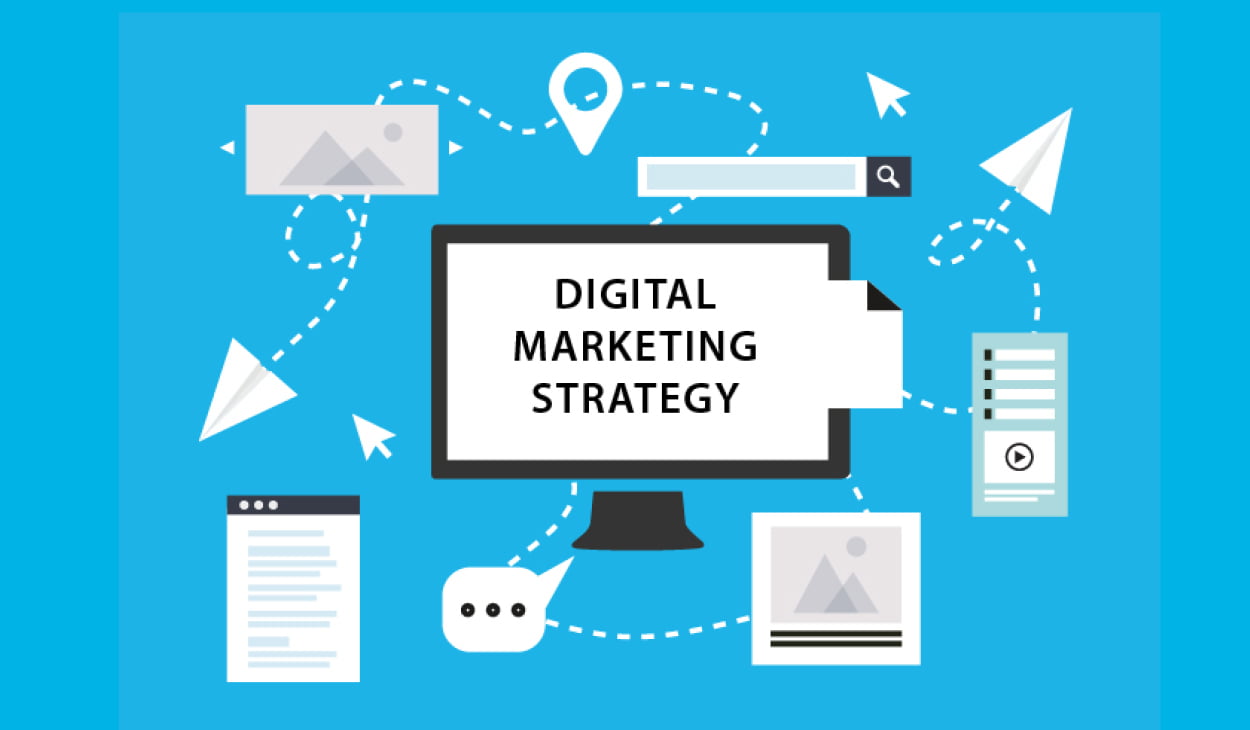
Businesses need a Digital Marketing Strategy
2020 Essentials: Why do businesses need a Digital Marketing Strategy?
No other year could have more convincingly borne a live testimony to the predictions and foresightedness of all the Digital enthusiasts till date. The year 2020 with its social distancing and contactless customer engagement dictum, gave the already in-vogue Digital Marketing a new hoick. With the in-person selling becoming impracticable by the hour, marketers had to divert all their energies towards devising a more robust and inclusive Digital Marketing strategy.
Having a Digital presence is non–negotiable today. A brand is as good as customers recognizing it. A Digital presence allows you visibility 24 hours a day, 7 days a week and 365 days a year – essentially helping you grow your business even as you sleep. Today, people’s attention is on their phones. Passengers in cars do not see the billboards, they are skimming their phones. Before the movie screening in theatres, people are skimming social media, not watching cinema ads. Hardly anyone sits out a commercial break without checking their phone. This, in essence, renders some of the priciest advertising, highly ineffective. Being available online allows your business to be seen by thousands of potential customers via search engines and social media, and with the ever-growing penetration of smartphones this has become increasingly achievable.

Digital Marketing has taken over way too much in the last 5 years, with not just better customer reach but also ensuring customer satisfaction and retention. To appreciate its significance, let’s start with analyzing our own behavior. Have you ever calculated the time you spend online, or studied the weekly screen time report available on your mobile phones? Do you make any decision without first typing a few keywords in your search engine bar or reading a review before taking the final call? If your answer is Yes to first and No to second, then you would understand how this phenomenon has entwined with our lives without us having taken as much as an earnest cognizance of it. A recent study has shown that people spend 33% of their online time on social media, with the remaining 67% on online TV and music streaming and other sources. This 33% is the prime window for businesses to get noticed, pitch and sell. Not to mention that the remaining 67 can also be put to use, but more on that some other time.
Most businesses today have a Digital presence, but a Digital Marketing strategy – not necessarily. And employing Digital Marketing without a strategic approach is commonplace. Something as simple as whether your goal is to acquire new customers or retain existing ones, or both, can change your Digital Marketing initiatives quite a bit. Understanding your online audience and mapping your business goals to customer goals to derive the shared value will help you define your online value proposition better and help target the right customers for you.
Digital Marketing includes managing different forms of online presences such as company websites, mobile apps, and social media pages in conjunction with online communications techniques like search engine marketing, social media marketing, online advertising, e-mail marketing and partnership arrangements with other websites.Broadly, Online marketing can be categorized into 3 overlapping sections –
- Paid Media comprising of your Facebook Ads and Google Adwords
- Owned media that consists of your websites, emails and your blogs
- Earned Media which is your social media accounts, mentions on other blogs and articles written about you
Read more: https://bfsi.eletsonline.com/



